Search Results
Showing results 521 to 540 of 1170
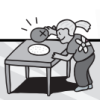
Electric Gelatin
Source Institutions
In this activity, learners explore static electricity and electrical charges while experimenting with an inflated balloon, unflavored gelatin powder, and a wool sweater.

The Best Dam Simulation Ever
Source Institutions
This online simulation game explores the different consequences of water levels on the Columbia River in the Pacific Northwest.
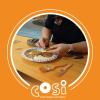
Cookie Paleontology
Source Institutions
In this activity, learners will explore paleontology and archaeology. They will learn about technique as they excavate raisins and chocolate chips from cookies.
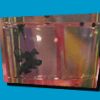
Color Splash
Source Institutions
In this activity, learners mix water, cooking oil, and liquid food coloring to create beautiful colored designs in a cup. Use this activity to explore liquid density and solubility.

Globe at Night
Source Institutions
In this international citizen science activity, learners measure their night sky brightness and submit their observations into an online database.

EEEEK--A Mouse!
Source Institutions
In this activity, learners explore the concept of how engineering solved the problem of human/computer interface.
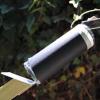
Periscope
Source Institutions
In this activity, learners construct a device that allows them to look over ledges or around corners.
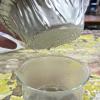
Wonderful Weather
Source Institutions
In this activity, learners conduct three experiments to examine temperature, the different stages of the water cycle, and how convection creates wind.
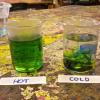
Energetic Water
Source Institutions
In this activity, learners explore how hot and cold water move. Learners observe that temperature and density affect how liquids rise and fall.
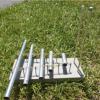
Metallophone
Source Institutions
In this activity, learners explore sound by constructing an instrument using some metal pipes, rubber bands, and a baseboard.
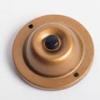
Two Button Buzzer Circuit
Source Institutions
In this activity, learners explore an everyday situation, where either of two or more buttons can ring a buzzer.
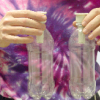
Does Air Weigh Anything?
Source Institutions
The demonstration/experiment provides quick proof that air has mass.

Coma Cluster of Galaxies
Source Institutions
In this activity, learners will first learn the basics of galaxy classification and grouping.
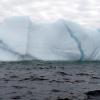
Melting Ice
Source Institutions
In this activity, learners explore density, convection, stratification, and, by inference, the melting of icebergs. Learners make hypotheses, test their hypotheses, and explain their observations.
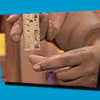
Reaction Time
Source Institutions
In this activity, learners conduct an experiment to test how fast they can react. Learners try to catch a piece of paper with a ruler printed on it (or a ruler) as quickly as they can.
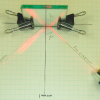
Mirror, Mirror
Source Institutions
In this activity, learners test the Law of Reflection based on experimental evidence. Learners produce raw data and explanations based on their data: pencil tracings of incident and reflection rays.

Fingerprints
Source Institutions
In this activity, learners examine their fingerprints and learn that they can be categorized by shape, but each fingerprint is unique.
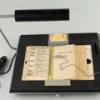
Cast Your Vote
Source Institutions
In this activity, learners explore how voting systems have changed with engineering advances over time. Learners work in teams to design their own voting system using easy to find materials.
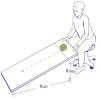
Static Friction Prediction
Source Institutions
In this activity (page 2 of PDF under GPS: Kinetic Sculpture Challenge Activity), learners will predict which objects have to overcome the most static friction to slide down a ramp.

Adaptive Device Design
Source Institutions
In this activity, learners explore the concept of how engineering has made possible the development of--and ongoing improvements to--adaptive devices that serve to help individuals with a wide range o
